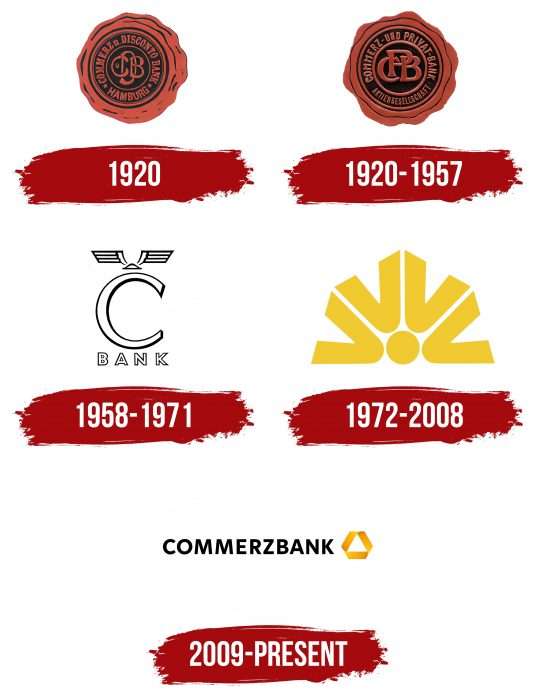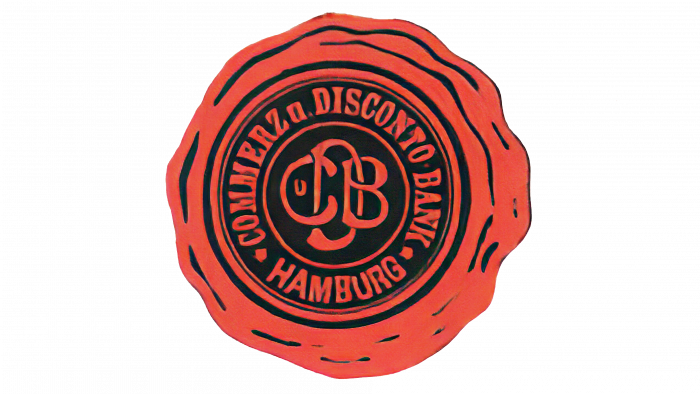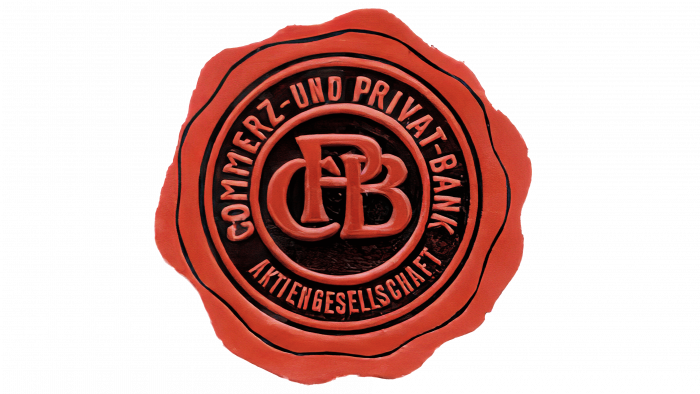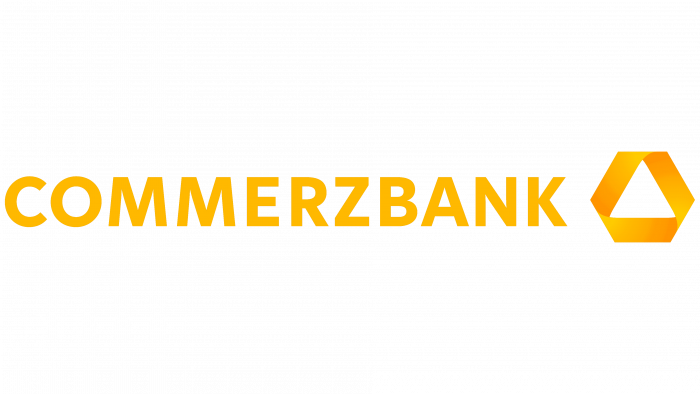Diversified harmonious development is the motto of the Commerzbank logo. The emblem indicates the provision of financial services to clients in the form of loans, deposits, and transfers, the increase in depositors’ funds using various instruments.
Commerzbank: Brand overview
| Founded: | 26 February 1870 |
| Founder: | Theodor Wille et al. |
| Headquarters: | Kaiserplatz, Frankfurt am Main, Germany |
| Website: | commerzbank.com |
Meaning and History
At the end of the 19th century, private and commercial bankers and Hanseatic merchants opened the Commerz-und Disconto-Bank in Hamburg. Its primary task was to facilitate trade, provide resources, attract cash flows to the city and search for new opportunities with an international perspective. The key figure in the process was Theodor Wille, a major trader, shipowner, and entrepreneur.
At first, the Hamburg bank operated only within the framework of its settlement. But in 1897, after buying J. Dreyfus & Co, a Frankfurt bank, expanded its geographic reach. It had branches in Frankfurt am Main, and Berlin and the headquarters moved to Germany’s capital. This event took place in 1905 after the acquisition of Berliner Bank. At the end of 1922, Commerz & Disconto Bank became the largest industry structure and owned 46 regional institutions.
All this time, the financial institution changed its emblems to meet new standards. The most significant identity change occurred in 1920 when the former Hamburg bank merged with the Mitteldeutsche Privat-Bank from Magdeburg. Then it was renamed Commerz-und Privat-Bank Aktiengesellschaft. And his first logos consisted of the abbreviations CDB (short for Commerz-und Disconto-Bank) and CPB (for Commerz-und Privat-Bank). Then there were variants based on the new name – Commerzbank.
What is Commerzbank?
Commerzbank is a German bank that offers a wide range of financial and investment services. It trades securities, provides insurance, issues loans, allows for opening accounts in different currencies, and manages assets. The institution was founded in 1870 and has since launched several hundred branches in various locations in Germany and abroad.
Before 1920
The debut emblem came from the wax seals used to seal the correspondence. It bore the “CDB” monogram. It stood for the then name of the financial institution – Commerz-und Disconto-Bank. The abbreviation was located in the center and enclosed in a circle, which consisted of many thin and wide edging stripes. One of them contained the name of the bank and indicated its location – Hamburg.
1920 – 1957
After the name change to Commerz-und Privat-Bank, the emblem underwent a redesign. The developers have replaced the old abbreviation with a new one – “CPB,” based on the recently approved name and different legal status (Aktiengesellschaft). The authors left the logo form the same, but the number of edging lines was reduced. Moreover, the canvas looked much neater.
1958 – 1971
As a result of the renaming into Commerzbank Aktiengesellschaft, the company again changed its visual identification mark. Starting from 1958, the winged “C” was approved as part of the corporate image. She emphasized the Hanseatic origins of the financial structure and the priority trade support. Above the large letter were the wings of the god of commerce – Mercury. At the bottom was the short word “Bank.” It denoted the legal status of a financial institution.
1972 – 2008
In 1972, after the establishment of the Europartner Group, the German bank introduced an updated logo. It has become radically different because instead of the terse letter “C,” a more complex symbol of several parts has appeared. It was a dynamic emblem called the Quatre Vents, indicating the direction of the wind. The logo consisted of four open corners, gathered together with a narrow part inward. They resembled the letter “V” and were arranged in a fan, forming a semicircle, as a wind rose with a bold dot in the middle.
2009 – today
The bank presented its current icon in October 2009. This is a tape bent in three places, which forms an isosceles triangle. It is taken over from Dresdner Bank. According to the concept, each stripe symbolizes close contact between bank employees, customers, and partners. Moreover, the logo expresses the dynamism, stability, and continuity of these business ties.
Commerzbank: Interesting Facts
Commerzbank AG stands out as a top financial institution in Germany with a long history and a big influence in banking locally and worldwide.
- In 1870, Commerzbank started in Hamburg to help finance international trade and boost German exports. This goal has shaped the bank’s direction ever since.
- Rebuilding After Wars: The bank overcame many obstacles during and after the World Wars. After World War II, it played a big role in rebuilding Germany’s economy by financing businesses and infrastructure.
- Banking Innovations: Commerzbank was ahead of its time, introducing online banking in the 1990s in Germany, making banking easier for its customers.
- Going Global: The bank has grown beyond Germany, opening branches worldwide to support its international customers and help with global trade and investment.
- Dresdner Bank Merger: In 2008, Commerzbank bought Dresdner Bank, making it one of the biggest bank mergers in Germany. This expanded its customer base significantly.
- 2008 Financial Crisis: The financial crisis hit the bank hard, and it received an 18.2 billion euro bailout from the German government, which became a major shareholder.
- Sustainability Efforts: Commerzbank is focusing on sustainability, funding renewable energy projects, and working to reduce its carbon footprint, showing its commitment to fighting climate change.
- Digital Shift: The bank is modernizing and investing in technology to serve its customers better and streamline its operations with digital banking solutions.
- Art Collection: Commerzbank also has a large collection of contemporary art, showcasing works from well-known and up-and-coming artists. This shows its interest in cultural and social matters.
- Trade Finance Leader: Building on its original mission, Commerzbank excels in trade finance, offering services and digital solutions to help with international trade.
Commerzbank’s history is a testament to its ability to adapt and innovate, supporting the German economy and clients worldwide through its banking services.
Font and Colors
Commerzbank’s badge changed along with his career. Each new stage of his activity was reflected in the identity. It all started with company seals – wax tags that the bank put on letters to keep the content’s secrecy. It was they who became the prototypes of the emblems. Then the management implemented the real symbols of visual identity using corporate colors – gray (in the beginning) and yellow (now).
The bank’s name is written in a chopped typeface – wide, in upper case, with a close arrangement of letters. The color palette consists of sunny yellow # ffbc13 (actual logo), black (in the middle of financial activity), and burgundy brown # ad422d (at the beginning of work).
Commerzbank color codes
| Tangerine Yellow | Hex color: | #ffca00 |
|---|---|---|
| RGB: | 255 202 0 | |
| CMYK: | 0 21 100 0 | |
| Pantone: | PMS 7408 C |
| Selective Yellow | Hex color: | #ffb800 |
|---|---|---|
| RGB: | 255 184 0 | |
| CMYK: | 0 28 100 0 | |
| Pantone: | PMS 1235 C |
| Chrome Yellow | Hex color: | #ffaa00 |
|---|---|---|
| RGB: | 255 170 0 | |
| CMYK: | 0 33 100 0 | |
| Pantone: | PMS 130 C |
| Orange Peel | Hex color: | #ff9b00 |
|---|---|---|
| RGB: | 255 155 0 | |
| CMYK: | 0 39 100 0 | |
| Pantone: | PMS 1375 C |
| Tangerine | Hex color: | #fd8200 |
|---|---|---|
| RGB: | 253 130 0 | |
| CMYK: | 0 49 130 0 | |
| Pantone: | PMS 716 C |
| Black | Hex color: | #000000 |
|---|---|---|
| RGB: | 0 0 0 | |
| CMYK: | 0 0 0 100 | |
| Pantone: | PMS Process Black C |











